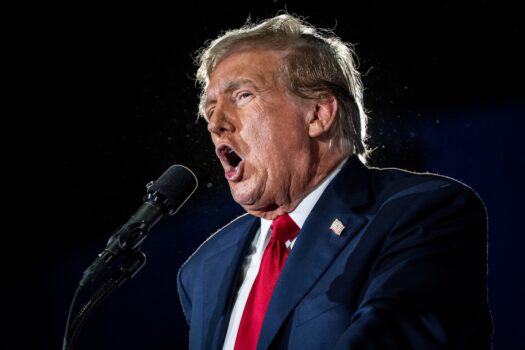The Supreme Court docket ruled Monday that former president Donald Trump is immune from prosecution for official acts taken whereas in workplace, however not for personal conduct, in a 6-3 ruling that split the justices along ideological lines.
What’s presidential immunity?
Broadly, it has referred to the authorized idea that previous and present presidents have some protections from authorized accountability. Within the context of Monday’s Supreme Court docket choice, it’s the ruling that Trump and others are absolutely immune to prosecution for actions taken whereas exercising their “core constitutional powers,” and entitled to the presumption of immunity for his or her official acts. It doesn’t present a defend for personal or unofficial acts.
Chief Justice John G. Roberts Jr. stated presidential immunity is critical to make sure an “energetic, impartial government” and to keep away from an government department that “cannibalizes itself, with every successive President free to prosecute his predecessors, but unable to boldly and fearlessly perform his duties for worry that he could also be subsequent.”
However the majority opinion stated the federal government might overcome the presumption of immunity for a former president’s official acts if it could actually present that prosecuting the precise conduct doesn’t intrude on “the authority and capabilities of the manager department,” The Washington Put up reported.
What did the Supreme Court docket outline as “official” versus “unofficial” acts?
The Supreme Court docket dominated {that a} president’s official conduct might prolong to all actions as long as they’re “not manifestly or palpably past” his or her authority.
It specified that official conduct for which Trump is immune from prosecution contains his discussions with Justice Division officers within the wake of the 2020 presidential election, throughout which he sought to persuade them to aggressively pursue unfounded claims of election fraud.
However whereas Trump’s makes an attempt to strain Vice President Mike Pence to alter the election’s outcomes might rely as official conduct, for which he’s “presumptively immune,” prosecutors can argue {that a} cost associated to communications with the vice chairman relating to the certification of President Biden’s victory doesn’t intrude on the manager department’s capabilities, The Put up reported.
Trump’s interactions with state officers and personal residents throughout his makes an attempt to overturn the 2020 election outcomes, in the meantime, “can’t be neatly categorized as falling inside” official conduct, the Supreme Court docket’s majority opinion stated. The court docket ordered the D.C. district court docket to “decide within the first occasion … whether or not Trump’s conduct on this space qualifies as official or unofficial.”
Most of a president’s “public communications are prone to fall comfortably inside the outer perimeter of his official duties,” which means they’re lined by immunity, the justices additionally stated.
What does the ruling on presidential immunity imply for Trump?
Within the close to time period, the ruling is favorable to Trump within the D.C. election interference case he faces, the place his claim for presidential immunity prompted Monday’s ruling.
That case in D.C.’s district court docket — by which Trump faces four charges associated to the accusation he conspired to overturn the election on Jan. 6 — has been considerably impacted by the Supreme Court docket’s choice and can now be delayed because the decide determines which acts he took had been “official,” and due to this fact immune from prosecution, and which had been “unofficial” and capable of be prosecuted. It’s extremely unlikely to happen earlier than the November election.
Of the 2 different felony circumstances towards Trump, the ruling might additionally have an effect on the state election-interference case towards him in Georgia. It’s much less clear if it will affect the case he faces in Florida, over classified documents discovered at Mar-a-Lago after his presidential time period. His legal professionals have already sought to challenge his conviction over concealing hush money payments to an adult-film actress in New York, although these acts came about earlier than he took workplace.
In a broader sense, critics of the Supreme Court docket ruling, including President Biden, have warned that Trump might be emboldened in a possible second time period, understanding that he would have immunity for acts that may have beforehand left him open to prosecution.
What was the dissent to the ruling?
The ruling was break up alongside ideological strains, with the court docket’s conservative majority — Chief Justice John G. Roberts Jr. and Justices Clarence Thomas, Samuel A. Alito Jr., Amy Coney Barrett, Neil M. Gorsuch, and Brett M. Kavanaugh, the latter three being Trump appointees — discovering within the former president’s favor, and liberal Justices Sonia Sotomayor, Ketanji Brown Jackson and Elena Kagan dissenting.
In a scathing dissent, Sotomayor listed actions she stated the ruling would make protected, together with a president staging a navy coup; having a rival assassinated; or taking a bribe in alternate for a pardon. The “deeply improper” ruling “reshapes the establishment of the Presidency” and “makes a mockery of the precept, foundational to our Structure and system of Authorities, that no man is above the regulation,” she wrote.
“The long-term penalties of at present’s choice are stark,” she wrote, including that: “In each use of official energy, the President is now a king above the regulation.”





